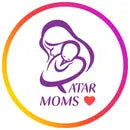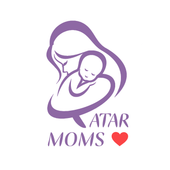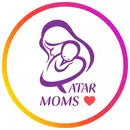Motherhood is a unique experience, a responsibility that a mother feels from the moment she carries her child, and when she hears his voice for the first time, she realizes that the responsibility is increasing. She is responsible for all the small and large details that relate to her child, proper nutrition is considered the most important. The nutrition necessary for its growth and health, and a newborn mother is often confused about feeding her child because she doesn't know when the child is hungry and when she should breastfeed him, for this reason we decided to tell new mothers about the infant hungry signs in these simple lines.
What are the infant hungry signs?
Despite the inability of a newborn child to express his need for food verbally, there are some signs and symptoms that indicate that the child is hungry, namely:
1. Difficulty sleeping
One of the newborn hunger cues is his sudden awakening from sleep and moving his hands and feet even if he was asleep, and he will wake up more than once at night for feeding.
2. Put his hand in his mouth
When the child tries to grip his hand, suck his fingers, and put his hand in his mouth, these are infant hungry signs, and he will open his mouth a lot.
3. Issuance of votes
Mostly when the baby feels hungry he will sigh and groan by issuing moans and low and short sounds indicating that he is hungry and in need of feeding.
4. Tilt the baby's head
One of the newborn hunger cues is that the baby moves his head as if he is looking for something, and his head tilts towards the mother’s breast if she is carrying it, and signs of annoyance and distress appear on his face.
Crying
The last newborn hunger cues that the infant resorts to when he fails to express his hunger and when he feels very hungry, but it is not a basic sign, as the child may cry for many reasons such as colic, pain and drowsiness.
Is burping a sign of satiety in the infant?
Most mothers believe that burping is a sign of the infant's satiety, but this is not true. There is no relationship between burping and the child's satiety, because burping is the process of expelling the air that the child swallowed during feeding, especially if the mother relied on bottles to breastfeed her child, which causes the stomach to be filled with air that it harms the child and is emptied through burping, and often the child returns to the breast after burping if he does not feel full.
Are there signs newborn is hungry?
If burping is not a sign that the baby is full and does not need to breastfeed, then these are the signs that indicate that the baby is full and does not need more milk:
1. Slow lactation
The baby's speed of swallowing milk decreases significantly when he feels full, his breath calms down, and the mother can hear the swallowing sound gradually diminishing.
2. Child smile
The child will smile when he is full, the mother will feel that his mood is improving, and the features of happiness and comfort will appear on his face instead of stress and annoyance.
3. Frequent urination
The number of urination increases when the child takes the milk he needs, he needs 6-8 diapers daily. If the mother notices a decrease in the times number the diaper is changed, this indicates insufficient breastfeeding.
4. Sleep comfortably
The child's continuous sleep for more than two hours indicates that the child is full. When the child is full, he automatically surrenders to sleep with comfort and relaxation.
5. Overweight
The increase in the baby’s weight at the normal rate indicates that he is taking enough milk for his growth and nutrition. The newborn baby loses 7% of his weight and then regains his health 10 days after birth with regular breastfeeding.
6. The development of his physical and mental abilities
When the infant is well fed, his health will improve significantly. The mother will notice an improvement in the child's activity, physical and mental skills.
What is the benefit of knowing the infant hungry signs?
Knowing the newborn hunger cues enables the mother to understand her infant and meet his needs early before he starts crying and screaming. This also builds a better relationship between the child and his mother and enhances the child’s love and sense of confidence, in addition to that it gives the mother an opportunity to charge her body with the energy and food necessary to feed her child on time when the child feels hungry.
Now that you know the infant hungry signs, it will become easier for you to know when your child is hungry and when he is full. We hope that you have benefited from this information. We advise you to contact your pediatrician if you notice that your child is not drinking enough milk and is showing signs of fatigue and weight loss.
 FREE DELIVERY FOR ORDERS ABOVE 100 QAR
FREE DELIVERY FOR ORDERS ABOVE 100 QAR DELIVERY WITHIN 3 HOURS
DELIVERY WITHIN 3 HOURS APPLE PAY AND CARD PAYMENT AVAILABLE
APPLE PAY AND CARD PAYMENT AVAILABLE



